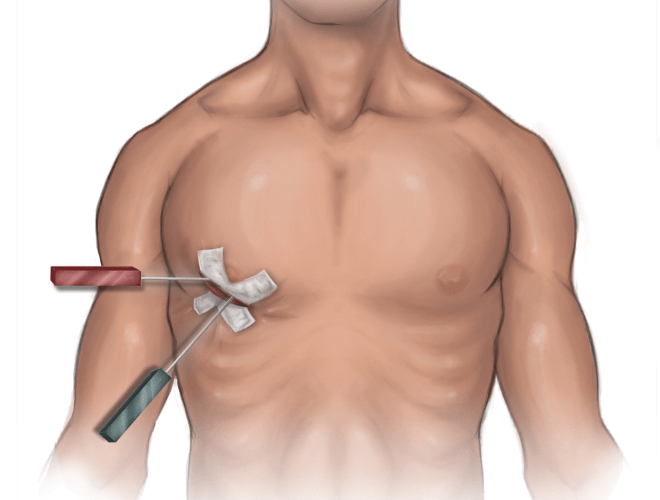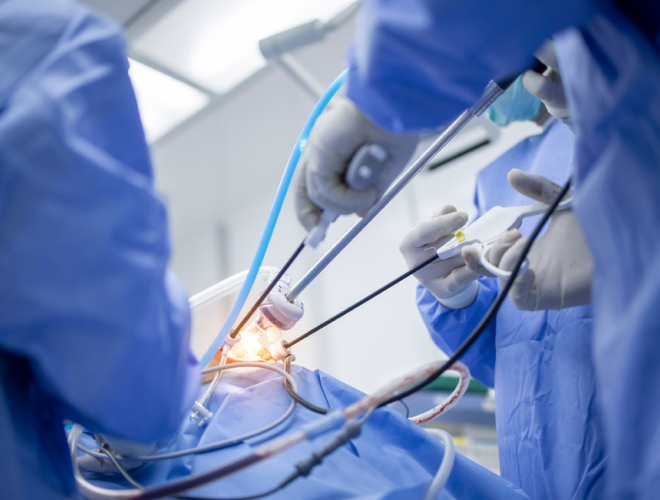


Heart disease is a complex and multifaceted condition that significantly affects an individual’s overall health. As the leading cause of death worldwide, an understanding of heart ailments and their impact on health is of utmost importance.
At its core, heart disease encompasses various conditions that impede the normal functioning of the heart, such as coronary artery disease, arrhythmias, congenital heart defects, and valvular heart diseases. These conditions arise due to a combination of risk factors including genetics, lifestyle choices, high blood pressure, smoking habits, obesity, diabetes and more.
Heart diseases can have serious consequences, including potentially fatal events such as heart attacks and strokes. It can also cause symptoms like chest pain, shortness of breath, fatigue, and dizziness, which eventually affect the quality of life. Additionally, it can negatively affect mental well-being, leading to increased anxiety and depression. Therefore, it is important to detect heart disease early through regular medical check-ups to manage risk factors and prevent complications.
Heart disease, often used interchangeably with cardiovascular disease, encompasses a range of conditions that affect the heart and blood vessels. From coronary artery disease and heart failure to arrhythmias and valvular disorders, heart disease is a multifaceted challenge that requires comprehensive solutions.
One of the most prevalent forms of heart disease is coronary artery disease, which occurs when the blood vessels supplying the heart muscle become narrowed or blocked due to the buildup of fatty deposits, known as plaques. These plaques restrict blood flow, leading to chest pain (angina) or, in severe cases, heart attacks.
Heart failure doesn’t mean the heart has stopped working, but rather that it isn’t pumping blood as effectively as it should. This can result from weakened heart muscles, damaged heart valves, or other underlying conditions. Shortness of breath, fatigue, and fluid retention are common symptoms.
Arrhythmias refer to irregular heartbeats, which can either be too fast (tachycardia) or too slow (bradycardia). These disruptions in the heart’s rhythm can be caused by various factors, including genetics, lifestyle, and other heart conditions.
The heart’s valves play a crucial role in maintaining proper blood flow through the heart chambers. Valvular disorders occur when these valves become damaged or dysfunctional, impeding the heart’s ability to pump blood efficiently.
Symptoms of heart disease can vary depending on the specific condition, but here are some common symptoms to be aware of:

As technology has advanced, so too can diagnose heart conditions with greater accuracy and precision. Gone are the days when doctors relied solely on listening to the heartbeats through a stethoscope. Today, an array of innovative diagnostic tools and imaging techniques offer a detailed look into the intricacies of cardiac function.
The electrocardiogram records the heart’s electrical activity and is a fundamental tool in diagnosing arrhythmias and other electrical abnormalities. This non-invasive test involves attaching electrodes to the skin to measure the heart’s rhythm and rate.
Echocardiography utilises ultrasound waves to create real-time images of the heart’s structures and function. It is instrumental in assessing heart valves, chamber sizes, and overall cardiac performance.
Cardiac magnetic resonance imaging (MRI) and computed tomography (CT) scans provide detailed images of the heart’s anatomy, allowing clinicians to identify issues such as heart muscle damage, tumours, and other structural abnormalities.
Researchers have identified specific molecules in the blood, known as biomarkers, that can indicate the presence of heart disease. Troponin, for instance, is a biomarker released into the bloodstream during a heart attack.
The evolution of cardiology research has given rise to an array of innovative treatments that go beyond traditional medications and surgeries. These treatments target the underlying causes of heart disease, aiming to restore normal cardiac function and improve patients’ quality of life.
Advancements in medical technology have led to minimally invasive procedures that offer effective alternatives to traditional open-heart surgeries. Catheter-based interventions, such as angioplasty and stent placement, have become commonplace for treating narrowed or blocked arteries.
Implantable devices, such as pacemakers and implantable cardioverter-defibrillators (ICDs), can help regulate heart rhythms and prevent sudden cardiac arrest. These devices use electrical impulses to maintain proper heart function.
The concept of regenerating damaged heart tissue has gained traction in recent years. Stem cell therapies and tissue engineering hold promise for repairing and replacing damaged heart muscles, potentially revolutionising how we treat heart failure.
Precision medicine tailors treatment plans to an individual’s genetic makeup, lifestyle, and other factors. This approach is transforming the way heart diseases are managed, as treatments become more personalised and effective.
While medical advancements have undoubtedly transformed the landscape of cardiology, the role of lifestyle in preventing heart disease cannot be overstated. Simple yet powerful changes in diet, exercise, and stress management can significantly reduce the risk of developing heart conditions.

A diet rich in fruits, vegetables, whole grains, lean proteins, and healthy fats can lower cholesterol levels, maintain blood pressure, and support overall heart health. Reducing sodium intake and limiting processed foods are also key components of a heart-healthy diet.

Regular exercise strengthens the heart muscle, improves blood circulation, and helps maintain a healthy weight. Aim for at least 150 minutes of moderate-intensity aerobic activity or 75 minutes of vigorous-intensity activity each week.

Chronic stress can contribute to heart disease by raising blood pressure and increasing inflammation. Meditation, yoga, and deep breathing exercises can help manage stress and promote heart health.
Let us now take a look at some of the foremost advancements in the field of management of heart ailments.
When it comes to the management of heart disease, medications have always played a vital role. However, with recent advancements in cardiology research, there are now some exciting new drug therapies on the horizon.
These medications aim to address heart disease from various angles, targeting specific mechanisms that contribute to its development. By reducing inflammation and improving blood flow, these novel drug therapies hold great promise in enhancing heart health and reducing the risk of complications.
The field of cardiology has embraced a revolutionary approach to treating heart disease with the introduction of targeted therapies. This cutting-edge method aims to identify precise molecular targets within the body that contribute to the development or progression of heart disease.
By focusing on these targets, healthcare professionals can customise treatments to meet the unique needs of each individual, ensuring maximum effectiveness while minimising any potential side effects. Although targeted therapies are still in their infancy, they hold immense potential for the future of heart disease treatment, instilling hope for improved outcomes and a better quality of life.
There has been a significant advancement in the minimally invasive surgical procedure arena as well:

Advancements in cardiology have led to a shift in the landscape of heart surgery. Minimally invasive cardiac surgeries are now offering a less intrusive and more patient-centric approach. These surgeries involve smaller incisions, specialised instruments, and cutting-edge imaging techniques, allowing surgeons to operate with precision while minimising trauma to the body.
The benefits include shorter hospital stays, faster recovery times, and reduced risks and complications. Patients can now look forward to a streamlined and patient-friendly experience, where their well-being is prioritised. These advancements have not only improved the physical aspects of heart surgery but also instilled optimism and trust in patients, who now approach these procedures with reassurance knowing that their health and comfort are a priority in medical advancements.
Minimally invasive procedures for heart disease offer a multitude of benefits. Patients who undergo these surgeries experience reduced pain, fewer complications during the recovery period, and a faster return to their daily activities. From coronary artery bypass grafting to valve repairs, nearly all common cardiac surgeries now have minimally invasive alternatives.
And the most remarkable aspect? The success rates of these procedures are comparable to those of traditional open-heart surgeries.
Therefore, if you are facing the possibility of cardiac surgery, it is highly advisable to discuss the potential of a minimally invasive option with your healthcare team. It could very well be the transformative solution you have been eagerly anticipating.

So, what does the future look like? Here are some of the things to look forward to:
There is no one-size-fits-all concept in the realm of heart disease treatment. And this is where precision medicine plays an important role. The concept revolves around customising treatments based on an individual’s genetic makeup, lifestyle, and other relevant factors.
By comprehending the unique characteristics of each patient, healthcare professionals can devise personalised treatment plans that are not only more effective but also more efficient. Precision medicine encompasses a range of approaches, from genetic testing, and identifying individuals at risk for heart diseases to the development of targeted therapies based on specific genetic markers. This groundbreaking field holds immense potential to revolutionise cardiovascular care, offering an exciting frontier that promises to enhance outcomes and save lives.
Artificial intelligence (AI) is no longer confined to the realms of science fiction; it is rapidly becoming a reality in the field of medicine. In the realm of cardiology research, AI is being harnessed to analyse vast amounts of data, identify intricate patterns, and make highly accurate predictions. This groundbreaking technology holds immense potential to revolutionise our understanding of heart disease, ultimately leading to enhanced diagnosis, treatment, and prevention strategies.

AI algorithms are being created to help healthcare professionals make better decisions in the field of cardiology. Although AI is still relatively new in this area, it has the potential to predict heart attack risks and guide treatment choices. The future holds limitless possibilities for AI advancements in cardiology.
The strides made in cardiology research and treatment have paved the way for a profound comprehension of heart disease, opening up new avenues for improved patient outcomes. From innovative diagnostic techniques and personalised therapies to minimally invasive procedures and cutting-edge areas of research, the future of cardiology holds tremendous promise. As researchers and medical professionals continue to unravel the mysteries of heart disease, there is genuine hope for enhanced prevention, early detection, and more effective treatment options. Ongoing advancements and collaborative efforts aim to alleviate the burden of heart disease and enhance the quality of life for individuals worldwide.
Spread the love, follow us on our social media channels